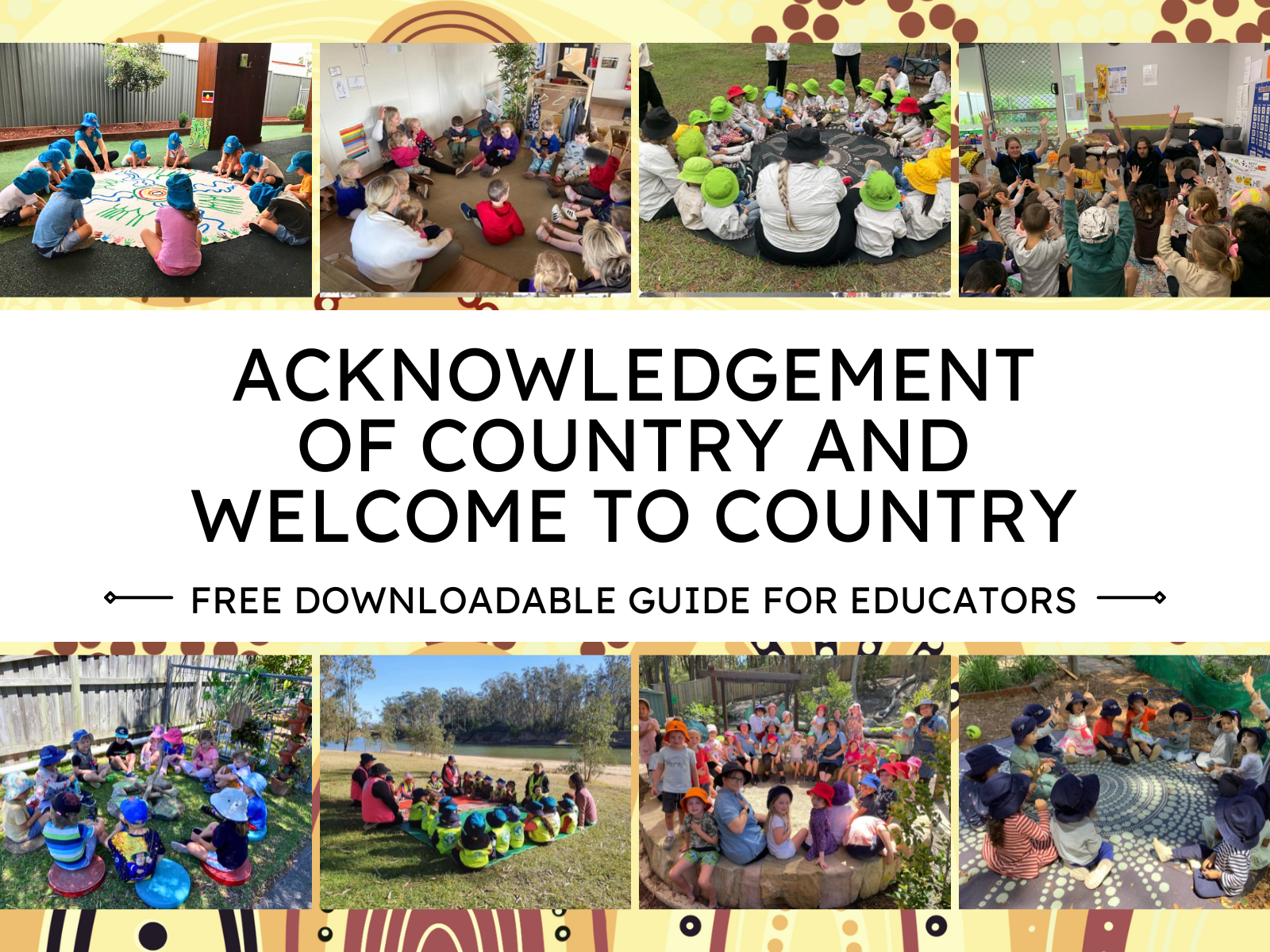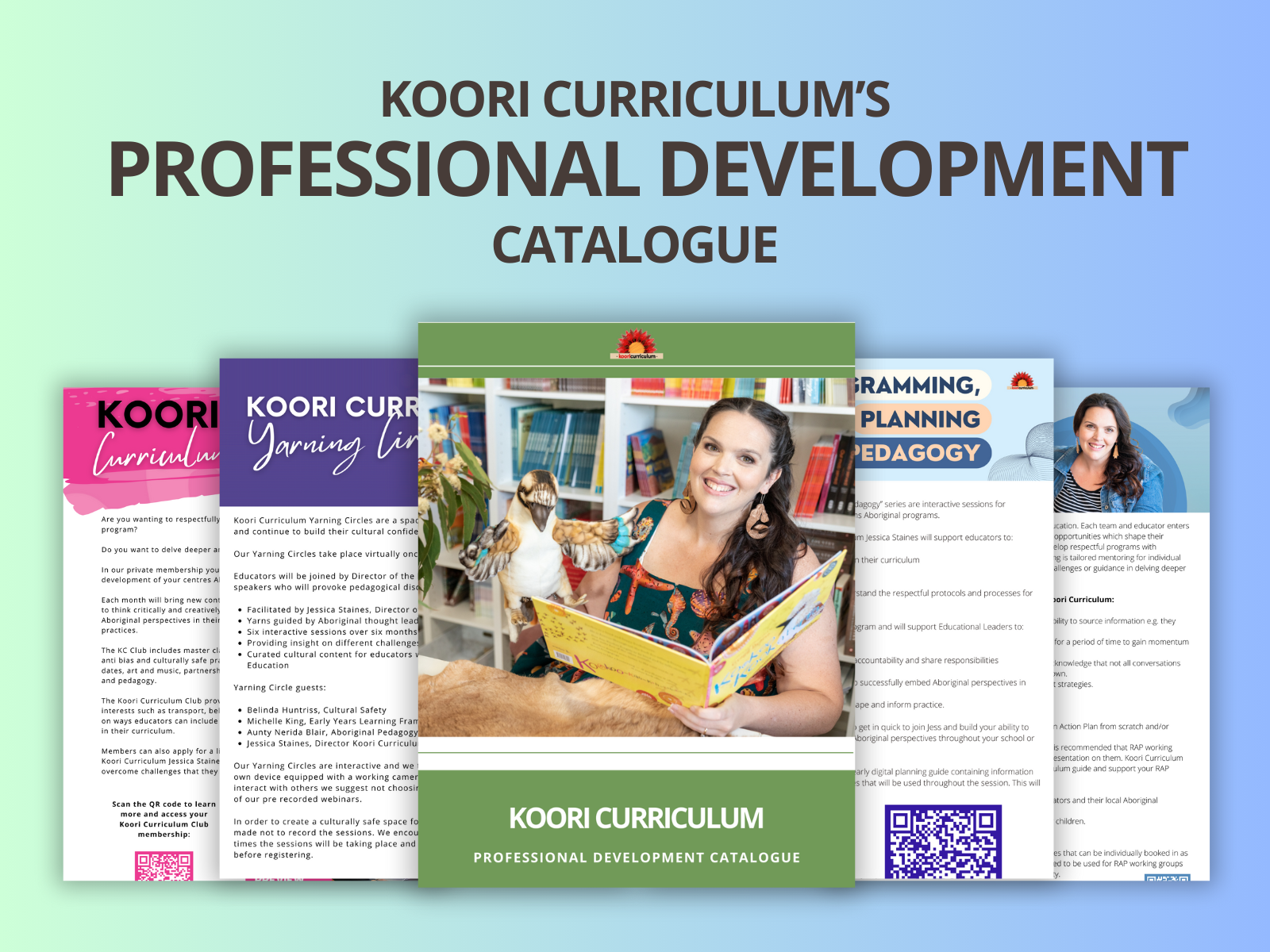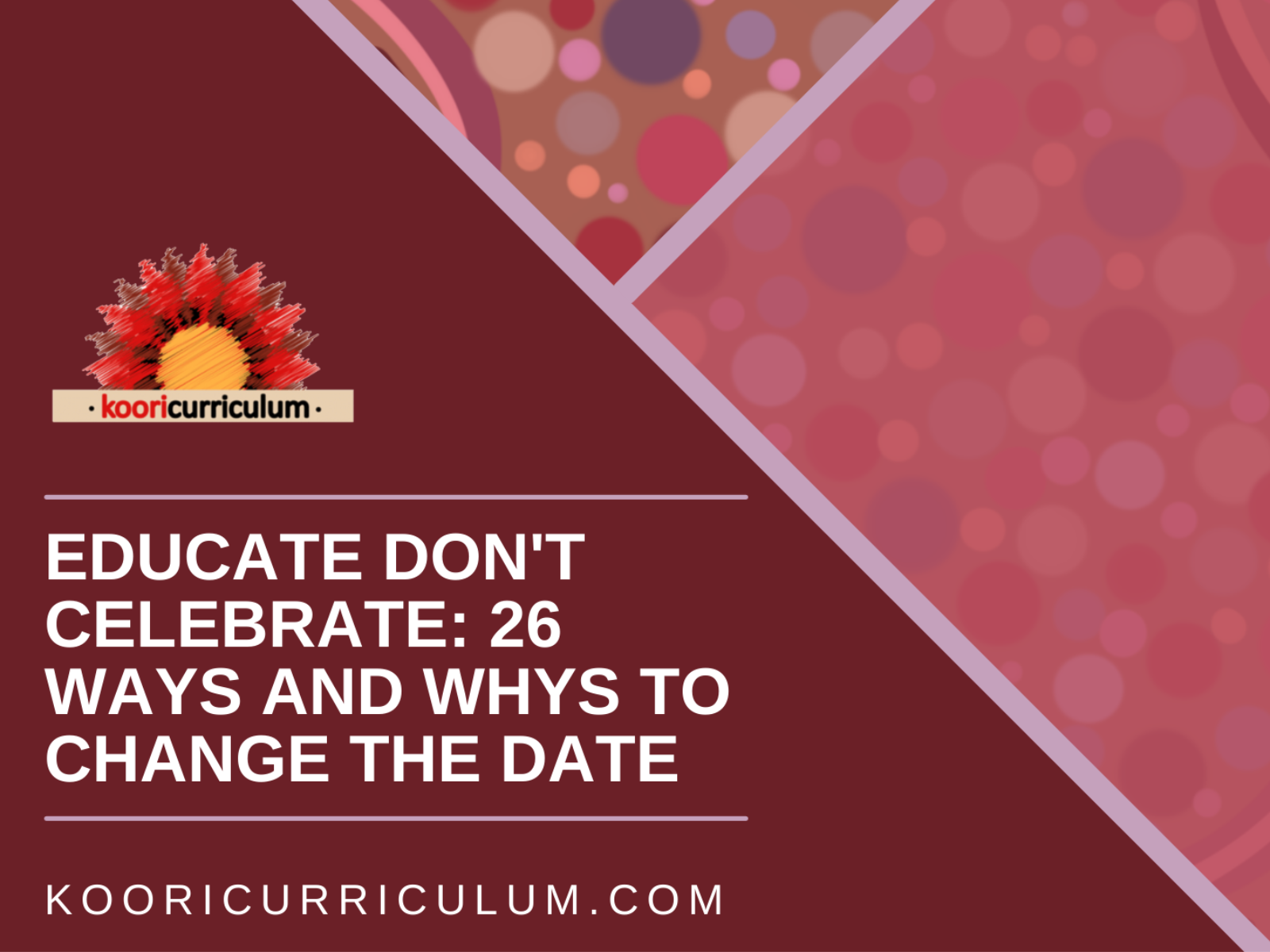
Books of the Month - February
February 2nd: World Read Aloud Day
We love all Ros Moriarty books for their rhythm and repetition which makes the fun books to read aloud.
"The Rainbow" By Ros Moriarty
A perfect read-aloud story which revels in the kaleidoscopic colours of the Australian landscape featuring Indigenous art by Balarinji.
The land bakes...RED. The sun sets...ORANGE. The dawn glows...GOLD. The flowers burst...YELLOW.
A joyous serenade to colours that show country before a storm, illustrated by Balarinji, Australia's leading Indigenous design studio.
"What's that there?" By Ros Moriarty
A lyrical story for the very young about birds featuring Indigenous artwork by Balarinji and aerial views of Australia's distinctive landscape.
What's that there? That's the rushing river's curly bend, cried the sea eagle perched on a knotted branch, swaying. There, look! What's that there? That's the cliff face sharp with sun-scorched stones, glinting, shrilled the hawk, gliding on summer winds. There, look!
An exhilarating celebration of the Australian landscape as seen from the sky featuring vibrant illustrations by Balarinji, Australia's leading Indigenous design studio.
"Summer Rain" By Ros Moriarty & Balarinji (Illustrator)
A lyrical book about one day during the wet season that celebrates in glorious colour the animals and landscapes of northern Australia with a nod to Indigenous art.
A joyous serenade of northern Australian animals and landscapes in the rainy season, illustrated by Balarinji, Australia's leading Indigenous design studio.
"Bush Tracks" By Ros Moriarty
What can you see? Follow the clues that landscape, seasons, weather, the stars, the moon and the sun give to navigate bush tracks and find the Australian animal.
A lyrical, fun story about tracking animals in the bush featuring vibrant illustrations by Balarinji, Australia's leading Indigenous design studio.
Kangaroos Hop by Ros Moriarty
Simple, intelligent, bright and cheerful, this early childhood concept book introduces animal names and verbs and celebrates indigenous art in a joyous, non-didactic and playful way.
Kangaroos Hop helps children identify favourite Australian animals in the Australian landscape. The kangaroos hop, the butterflies fly, the echidnas shuffle across the land and down to the water's edge where a sleepy crocodile lies...Shhhh! The lively illustrations and cumulative text help readers identify animals as well as verbs.
Splosh for the Billabong by Ros Moriarty
A lyrical book which revels in all things swirly and squelchy, and explores northern Australian animals and landscapes as well as indigenous art.
Splosh for the billabong at shady bend of river. Brush for the flowers that burst in summer heat.
A glorious celebration of country, animals and painting, illustrated by Balarinji, Australia's leading Indigenous design studio.
Who Saw Turtle? by Ros Moriarty
A simple story for the very young that tracks the amazing migration of turtles featuring vibrant Indigenous artwork by Balarinji.
Who saw Turtle? Did the whale with the slapping, splashing tail? Or the octopus with the dangly, stretchy tentacles? Maybe the fish with the glittery, shimmering scales?
A glorious exploration of the amazing migration of Turtle as she travels the world and then returns home to lay her eggs, illustrated by Balarinji, Australia's leading Indigenous design studio.
Ten Scared Fish by Ros Moriarty
Simple, intelligent, bright and cheerful, this early childhood concept book introduces animals and numbers and celebrates indigenous art in a joyous, non-didactic and playful way.
Ten Scared Fish is an animal counting book with a difference. Following the river to the sea, the reader meets and counts the animals until finally ten little fish meet a big scary shark! Bold illustrations and a delightfully playful text help readers familiarise themselves with prepositions as well as animals and numbers.
February 11th: International Women and Girls in Science Day
We have a deadly Aboriginal science book bundle definitely worth checking out which includes titles
The First Scientist by Corey Tutt
The First Scientists is the highly anticipated, illustrated science book from Corey Tutt of DeadlyScience. With kids aged 7 to 12 years in mind, this book will nourish readers’ love of science and develop their respect for Indigenous knowledge at the same time.
Have you ever wondered what the stars can tell us? Did you know the seasons can be predicted just by looking at subtle changes in nature? Maybe you have wondered about the origins of glue or if forensic science is possible without a crime scene investigation. Australia's First peoples have the longest continuing culture on Earth and their innovation will amaze you as you leaf through the pages of this book, learning fascinating facts and discovering the answers to life's questions.
In consultation with communities, Corey tells us of many deadly feats – from bush medicine to bush trackers – that are today considered 'science', and introduces us to many amazing scientists, both past and present. The breadth of ‘sciences’ is incredible with six main chapters covering astronomy, engineering, forensic science, chemistry, land management and ecology. The first scientists passed on the lessons of the land, sea and sky to the future scientists of today through stories, song and dance, and many of these lessons are now shared in this book.
Vibrant illustrations by Blak Douglas bring the subjects to life, so you’ll never think about science as just people in lab coats ever again!
Looking After Country with Fire: Aboriginal Burning Knowledge With Uncle Kuu by Victor Steffensen (Hardcover)
Looking After Country with Fireis a picture book for 5- to 10-year-olds that demonstrates respect for Indigenous knowledge, following the success of Victor Steffensen's bestselling adult book Fire Country.
Mother Nature has a language. If we listen, and read the signs in the land, we can understand it.
For thousands of years, First Nations people have listened and responded to the land and made friends with fire, using this knowledge to encourage plants and seeds to flourish, and creating beautiful places for both animals and people to live.
Join Uncle Kuu as he takes us out on Country and explains cultural burning. Featuring stunning artwork by Sandra Steffensen, this is a powerful and timely story of understanding Australia's ecosystems through Indigenous fire management, and a respectful way forward for future generations to help manage our landscapes.
At the back of the book, you will also find lyrics to a song written by author Victor Steffensen with the same title, 'Looking After Country with Fire'.
February 13th: the anniversary of the National Apology
On 13 February 2008 Prime Minister Kevin Rudd made a formal apology to Australia’s Indigenous peoples, particularly to the Stolen Generations whose lives had been blighted by past government policies of forced child removal and Indigenous assimilation.
The journey to national apology began with the Bringing Them Home report – the findings of an inquiry instigated by the Human Rights and Equal Opportunity Commission in 1995.
Books that we recommend to learn more about this date with children are:
Sorry Day by Coral Vass & Dub Leffler
In a time ‘long ago and not so long ago’ children were taken from their parents, their ‘sorrow echoing across the land’. As the Prime Minister’s speech unfolds Maggie is reunited with her mother. But the faces and memories of the stolen generation are all around them. Two stories entwine in this captivating retelling of the momentous day when the then Prime Minister of Australia, Kevin Rudd, acknowledged the sorrows of past and said ‘Sorry’ to the generation of children who were taken from their homes.
The book includes a foreword from Lee Joachim; Chair of Rumbalara Aboriginal Cooperative and Director of Research and Development for Yorta Yorta Nation Aboriginal Corporation.
Sorry Sorry by Anne Kerr (Hardcover)
This Hardback edition could be a first step of informing these young children of a significant aspect of Australian history, with age appropriate illustrations and dialogue. This book could also be an introduction to understanding the journey of reconciliation with Australia’s First Peoples.
The hope is that Sorry Sorry can be used to enable other educators, be they teachers, family or friends, to begin the conversation of Australia’s early history with the young people in their lives.
It is hoped that Sorry Sorry will go some way in helping build a platform where understanding, appreciation and respect for ‘All People’ can be built.
February 14th: Valentines Day
Why not promote self love on this day. We recommend the book “I love me” insert image and book description.
I love me by Sally Morgan
I love the way my heart knows best.
I am me. Who else would I be?
I love me!
A celebration of individuality and joyous self-esteem in bouncy, rhythmic prose and riotous colour.
















